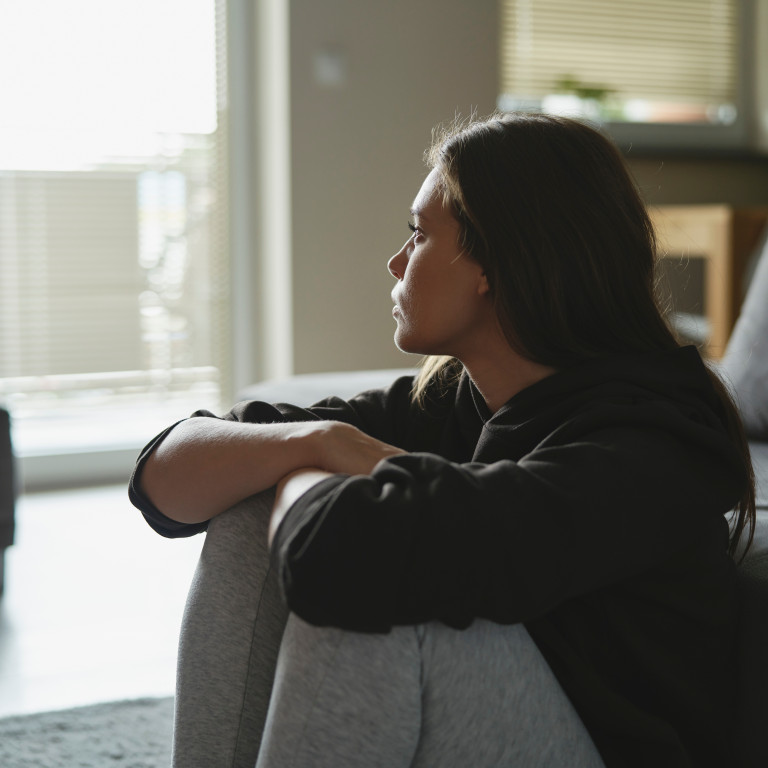Domestic abuse covers a range of types of abuse, including, but not limited to, physical, psychological, sexual, financial, and emotional abuse. It is defined as any incident of controlling, coercive, or threatening behaviour, violence, or abuse between those aged 16 or over who are or have been intimate partners or family members.
Sexual violence is a term used to encompass any type of unwanted sexual act or activity, including rape, sexual assault, sexual abuse, and many others. Sexual violence can be perpetrated by a stranger or by someone known like a friend, family member, partner, or colleague.
Coercive control can be controlling behaviour such as isolating victims from their friends and family, monitoring what they do and who they communicate with, and depriving them of access to basic needs and support services.
Anyone can experience domestic abuse or sexual violence regardless of age, sex, race, ethnic or religious group, disability, or lifestyle.
Following guidance from the CPS in December 2022, children affected by domestic abuse are also to be treated as victims, irrespective of whether they have been present throughout violent incidents.
If your partner or a family member is being abusive towards you this is a criminal offence, and you are able to report the abuse to the police and ask to press charges. You can also pursue a civil remedy through the family courts by applying for an injunction order otherwise known as a non-molestation order.
Non-molestation and Occupation orders
A Non-Molestation Order can stop that person from using violence, threatening, intimidating, or harassing you. Any children who live with you can also be protected. It is a criminal offense to breach a Non-Molestation Order. If anybody is to ignore an order made against them, and be found guilty of breach, they may potentially face a prison sentence of up to 5 years and/or a large fine.
Under certain circumstances, the courts can order also that person to move out of the home that you may have shared through the making of an Occupation Order. An Occupation Order decides who is entitled to live in the home and can be used to exclude an abusive person.
Who may apply for a Non-Molestation Order?
Spouses and former spouses; people who live together or have lived together in the same household - such as tenants, lodgers, boarders; same sex-couples; relatives - such as grandparents, grandchildren, aunts, uncles, nieces, nephews, stepparents and stepchildren; engaged couples; parties that are or have been in an intimate relationship, parents of the same child and parties to family proceedings. Children can also apply for this order, although if they are aged under 16 the court’s permission is needed and this will only be given if the court is satisfied that the child has sufficient understanding to make the application.
Who can apply for an Occupation Order?
This is a complicated area and is dependent on what rights you have in relation to your home. Anyone who is entitled to apply for a Non-Molestation Order and who also has a legal right to occupy the home can usually apply for an occupation order.
However, all spouses and former spouses, cohabitants, and former cohabitants have the right to apply no matter what rights they have in relation to their home.
How quickly can I get an injunction order?
If you need urgent protection, you can ask the court for an immediate hearing at which only you and your solicitor attend and the court can be invited to make an order based on what you say, which will be recorded in a written statement prepared by your solicitor on your behalf. This hearing can often occur on the same day that you instruct your solicitor. If this happens, there will be a further hearing soon afterward, usually within fourteen days, at which the other party to the case can put their side of the case to the court. From first seeing a solicitor to a final order being made can take less than one month.
How long will the order last?
An injunction order is intended as a time-limited form of protection, usually lasting twelve months, although orders can be made for extended periods if the court feels that on-going protection is required beyond this standard period.
Safe Spaces
Safe Spaces was first launched in 2020 and is now available in over 7,000 pharmacies and banks across the UK, Safe Spaces operates alongside the Home Office Ask for ANI scheme, whereby people can ask for ‘ANI’ at pharmacy healthcare counters to access an immediate police response.
Refuge – National Domestic Abuse Helpline – 0808 2000 247
Refuge have a free 24-hour confidential helpline to offer advice on understanding your options and to support you in increasing your safety. Refuge also provides a live chat and BSL interpreter service should a telephone call not meet your needs. Visit their website for more information: https://www.nationaldahelpline.org.uk/en.
How can we help?
Our specialist domestic abuse team at Tozers appreciates that seeking advice when you have been subjected to domestic abuse can be a very difficult step to take. We can offer advice about a range of options available to you, whether legal protection by way of an injunction, advice about support from other agencies, or just information to assist you in making decisions for yourself or others in your family.
A member of our family team can be available at short notice to discuss your difficulties and if necessary, assist you in applying to the court for an order for your protection.
Co-Author - Ellie Michaud






